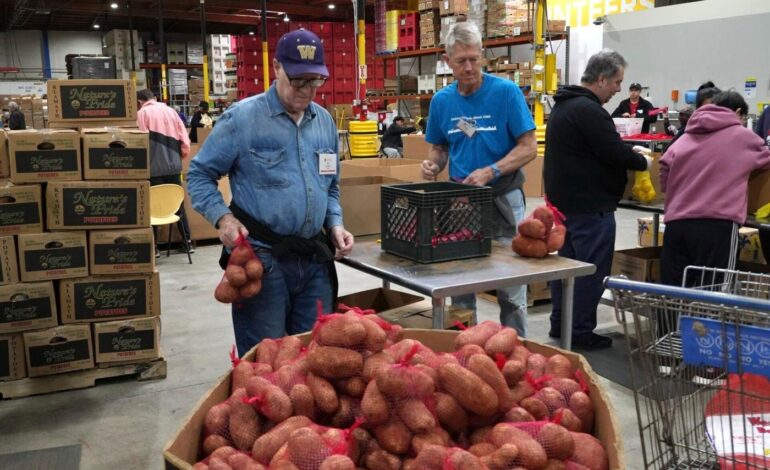One in Three Californians Cut Food Spending Amid Rising Prices

A recent survey reveals that nearly one in three Californians has reduced their food spending in the past year due to rising grocery prices and disruptions in food assistance benefits. This finding, published by the Public Policy Institute of California, highlights the financial strain faced by many residents in the state.
The survey, conducted from October 16 to 30, 2025, indicates that approximately 30% of respondents reported spending less on food to save money. Among lower-income households, this figure rises to a concerning 50%, according to Mark Baldassare, the institute’s survey director. He emphasized the vulnerability of these households in light of ongoing economic challenges.
Food prices have consistently increased since the pandemic, driven by factors such as new tariffs on imported goods. Data from federal sources indicates that food prices rose by about 3% nationwide over the 12 months leading up to September 2025. At the same time, many of California’s 5.3 million SNAP benefit recipients experienced delays in federal food assistance payments during a government shutdown, prompting many to seek help from food banks across the Bay Area. Although aid has resumed, new work requirements introduced under President Donald Trump‘s recent legislation are set to take effect next month. These changes have raised concerns that millions could ultimately lose their assistance.
The survey also revealed a pervasive sense of economic uncertainty among Californians. Almost 70% of respondents anticipate serious economic challenges in the coming year. Despite this, three-quarters of those surveyed expressed at least some satisfaction with their household financial situations. To improve the economic outlook, a significant majority of adults support increased public spending on job training (78%), childcare programs (73%), and the establishment of a new government health insurance option (79%).
Despite their support for these initiatives, many Californians lack confidence in their elected leaders’ ability to address economic issues. Governor Gavin Newsom received a 52% approval rating, while state lawmakers garnered only 46%. In contrast, President Trump and Congress received markedly lower approval ratings of 27% and 17%, respectively.
Baldassare noted that Californians have been increasingly pessimistic about the economy and affordability for several years, which is significantly influencing their broader perspectives. The survey’s margin of error is plus or minus 3.1 percentage points for the overall sample, which consisted of 2,306 adult residents of California.
As the state grapples with these economic pressures, the findings underscore the urgent need for effective policies that address the financial challenges faced by many households.






